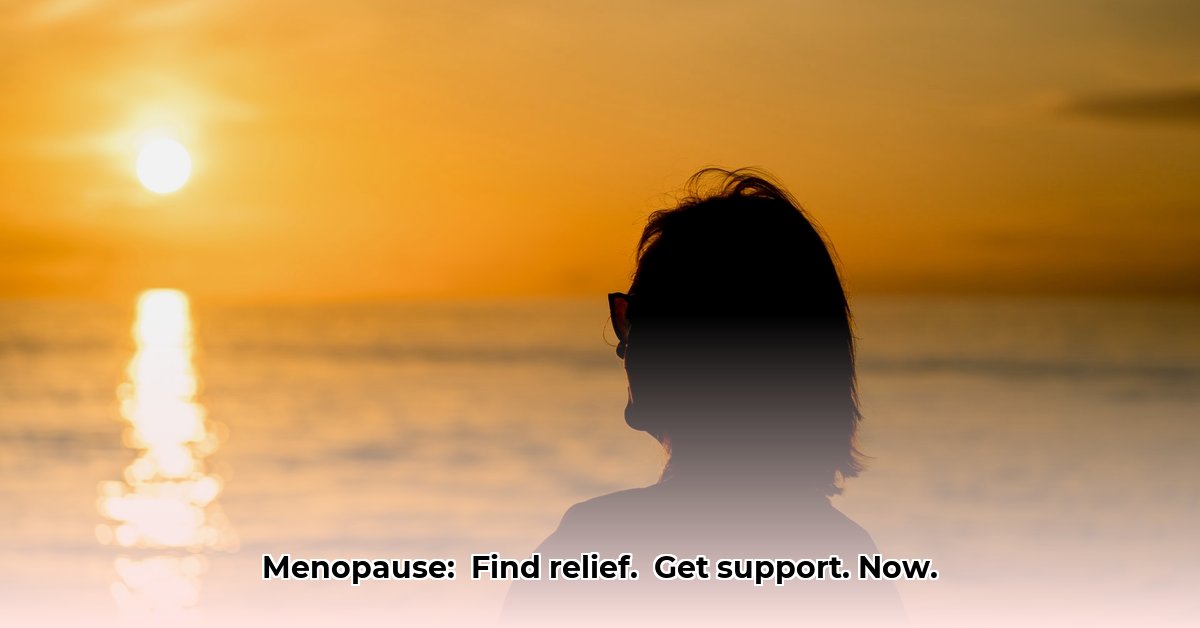
Going through menopause? Jy's nie alleen nie! This guide offers a friendly, easy-to-understand look at what you can expect, from the first signs to long-term health. We'll cover common symptoms – hot flushes, sleepless nights, mood swings – and give you practical tips to manage them. We'll also discuss when to see a doctor, the pros and cons of hormone replacement therapy (HRT), and how a healthy lifestyle can help. Most importantly, we'll show you where to find support, so you can confidently navigate this new chapter.
Understanding Perimenopause and Menopause: What's the Difference?
Let's clear up some terms. Perimenopause (die pre-menopouse fase) is the gradual shift towards menopause. It can last for years, even a decade, with symptoms coming and going. This is due to fluctuating hormone levels, causing irregular periods – a key early sign. Menopause is officially declared after a full year without a period, usually around age 51, but this varies. Every woman’s journey is unique.
Common Symptoms: What to Expect
Symptoms vary greatly. Common complaints include hot flushes (that sudden intense heat), night sweats disrupting sleep, mood swings (feeling emotional or irritable), and changes in sex drive, including vaginal dryness affecting intimacy. Remember, not every woman experiences all symptoms, or to the same degree. Listen to your body and understand your individual experience. Is it impacting your daily life? If so, let's explore solutions.
Diagnosis and Assessment: When to See a Doctor
If you’re concerned about your symptoms, chat to your doctor or gynaecologist. They can confirm it's menopause and rule out other issues. Early diagnosis means early management, minimizing disruption. Open communication is key – ask questions! Don't hesitate to seek professional help. Early intervention is key to managing your symptoms effectively. What questions should you be asking your doctor?
Lifestyle Adjustments: Simple Changes, Big Impact
Simple changes can significantly improve your experience.
Diet: A balanced diet with fruits, vegetables, and whole grains. Limit processed foods and caffeine, which can worsen symptoms. A healthy gut is also important. What foods are best for supporting hormonal balance during menopause?
Exercise: Aim for at least 30 minutes of moderate exercise most days. Choose activities you enjoy – brisk walking, swimming, dancing. How much exercise is needed to see a positive impact on menopausal symptoms?
Stress Management: Stress exacerbates symptoms. Try yoga, meditation, deep breathing, or spending time in nature. What stress-reduction techniques are most effective for managing menopausal symptoms?
Sleep Hygiene: Prioritise quality sleep. Establish a regular sleep schedule, create a relaxing bedtime routine (a warm bath, perhaps?), and ensure your bedroom is dark, quiet, and cool.
Medical Interventions: Exploring Your Options
Lifestyle changes alone might not suffice. Medical interventions offer further relief.
Hormone Replacement Therapy (HRT): HRT replaces declining hormones. It can effectively alleviate hot flushes, night sweats, and vaginal dryness. However, discuss the risks and benefits with your doctor; it’s not suitable for everyone.
Other Medications: Your doctor may suggest antidepressants for mood swings or low libido, or treatments for vaginal dryness.
| Treatment Option | Benefits | Potential Risks | Suitability |
|---|---|---|---|
| HRT | Reduces hot flushes, night sweats, vaginal dryness | Blood clots, stroke, increased risk of certain cancers (risk varies). | Discuss with your doctor |
| Other Medications | Addresses specific symptoms | Side effects vary depending on the medication | As prescribed by your doctor |
| Lifestyle Changes | Improves overall well-being | Requires commitment, may not alleviate all symptoms | Suitable for everyone as a complementary therapy |
Long-Term Health Considerations: Looking Ahead
Menopause is a life stage, not an illness. Regular check-ups, including mammograms and bone density scans, are crucial for continued well-being. Maintaining bone health is especially important as we age. What are the long-term implications for your health?
Support and Resources: You're Not Alone!
You're not alone. Support groups and online communities offer a safe space to share experiences and find emotional support. Talk to your doctor about local resources. Finding a supportive community can make this journey so much easier. Where can you find local support groups for women experiencing menopause?